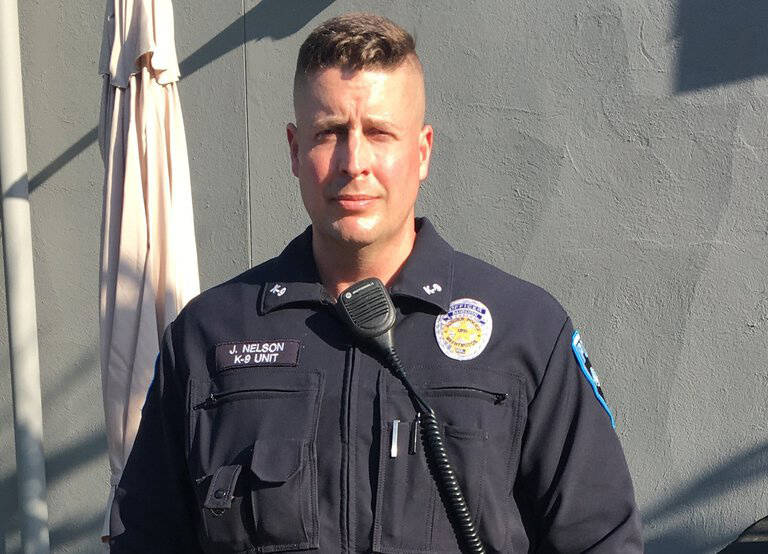The City of Auburn agreed last week to settle a lawsuit that was brought against it by the family of a man Auburn Police Officer Jeff Nelson shot and killed in June 2017.
According to the signed settlement document, the cost to the city for settling the case with Isaiah Obet’s estate is $1.25 million.
The city declined to make any comment beyond that.
“Nothing can bring Isaiah back, and we still grieve his loss every day,” the family said in a press release Aug. 20.
But the family, speaking through attorneys David B. Owens and Mariah Garcia of the civil rights law firm Loevy & Loevy, had a lot to say — including about the unusual speed of the settlement.
“That the city agreed to settle before discovery began,” the family said in the press release, “illustrates how egregious Nelson’s actions were, as they have been with other community members who have been victims of Nelson’s force.”
Throwing the family’s grievances into sharp relief is that on the day Obet’s attorneys made their announcment, King County Prosecutor Dan Satterberg announced his office was going to charge Nelson with one count of second-degree murder and one count of first-degree assault for the death of 26-year-old Jesse Sarey in 2019.
Nelson was arraigned Aug. 24 on both charges and was jailed on $500,000 bail.
Between 2011 and 2019, according to the Auburn Police Department, Nelson was “involved in” three of the city’s five fatal shootings: Brian Scaman in 2011; Obet in 2017; and Sarey in 2019.
That only confirms to the family, it said, the public’s need to know what happened on June 10, 2017, when Nelson shot Obet.
For that reason, the family urged the city to drop its participation in a multi-city lawsuit against King County Executive Dow Constantine that challenged nearly every aspect of the inquest system, which the family called the proper mechanism for disclosing what happened to Obet.
In the absence of an inquest, here is the family’s account.
“We alleged then — and firmly believe — that Nelson’s ‘kill shot’ was a street execution of a man who had already been shot once, bitten by a dog, and on the ground. Nelson’s statements the day of the shooting are consistent with this account,” the Obet family wrote, alleging, however, that days later Nelson contradicted himself and provided a different version of events.
Here is the city’s account.
Police responded to a series of calls that Obet, armed with a knife, had committed a home-invasion robbery and then tried to carjack a vehicle driven by a mother with a child in the back seat, not as Obet’s attorneys alleged, because he was “acting strangely,” the city said.
Police likewise contradicted the claim that Obet had shown signs of mental illness. Victims of the home invasion robbery told police in the 911 call, police said, that Obet appeared to be high on drugs. The medical examiner’s subsequent toxicology test, police said, showed that Obet had “remarkably high levels of both amphetamine and methamphetamine in his system.”
When Nelson encountered Obet, mere minutes after his attempted violent attacks, police said, Obet had already stopped another car in the middle of the street, then tried to open the door and break the window by stabbing at it with a knife.
“Nelson exited his marked patrol car and released his K9 partner, Koen,” police said. “While the dog did bite Mr. Obet, the bite did not stop Mr. Obet’s attack. Officer Nelson gave Mr. Obet several commands to stop and drop the knife. Mr. Obet, still armed with the knife, refused Officer Nelson’s commands and instead turned to face Officer Nelson. Officer Nelson fired his weapon once, striking Mr. Obet in the upper chest and shoulder.
“While the shot caused Mr. Obet to fall to the ground, it did not disable him,” police said. “Mr. Obet, still fighting the K9, started to get up off the ground. Officer Nelson shared in his post-incident statement to the Valley Independent Investigative Team that he was fearful that if Mr. Obet got back on his feet, Mr. Obet could stab him with the knife, or injure or kill the driver. Officer Nelson shot a second time and this stopped Mr. Obet’s attack. The claim of the Loevy & Loevy lawyers that Mr. Obet ‘posed no threat’ is simply not true.”
Rather than seeing contradictions in Nelson’s own account of the incident, the family said, the city stood behind him and defended him.
“As a community,” the family concluded, “we must continue to push for accountability and transparency when it comes to police officers who kill community members, like Isaiah and Jesse, and we urge the City of Auburn to stop fighting the inquest process. We urge the City of Auburn to stop fighting transparency. We urge the City of Auburn to stop opposing the inquest as an important mechanism for accountability and to allow the public to learn what happened when Jeff Nelson killed Isaiah Obet.”


